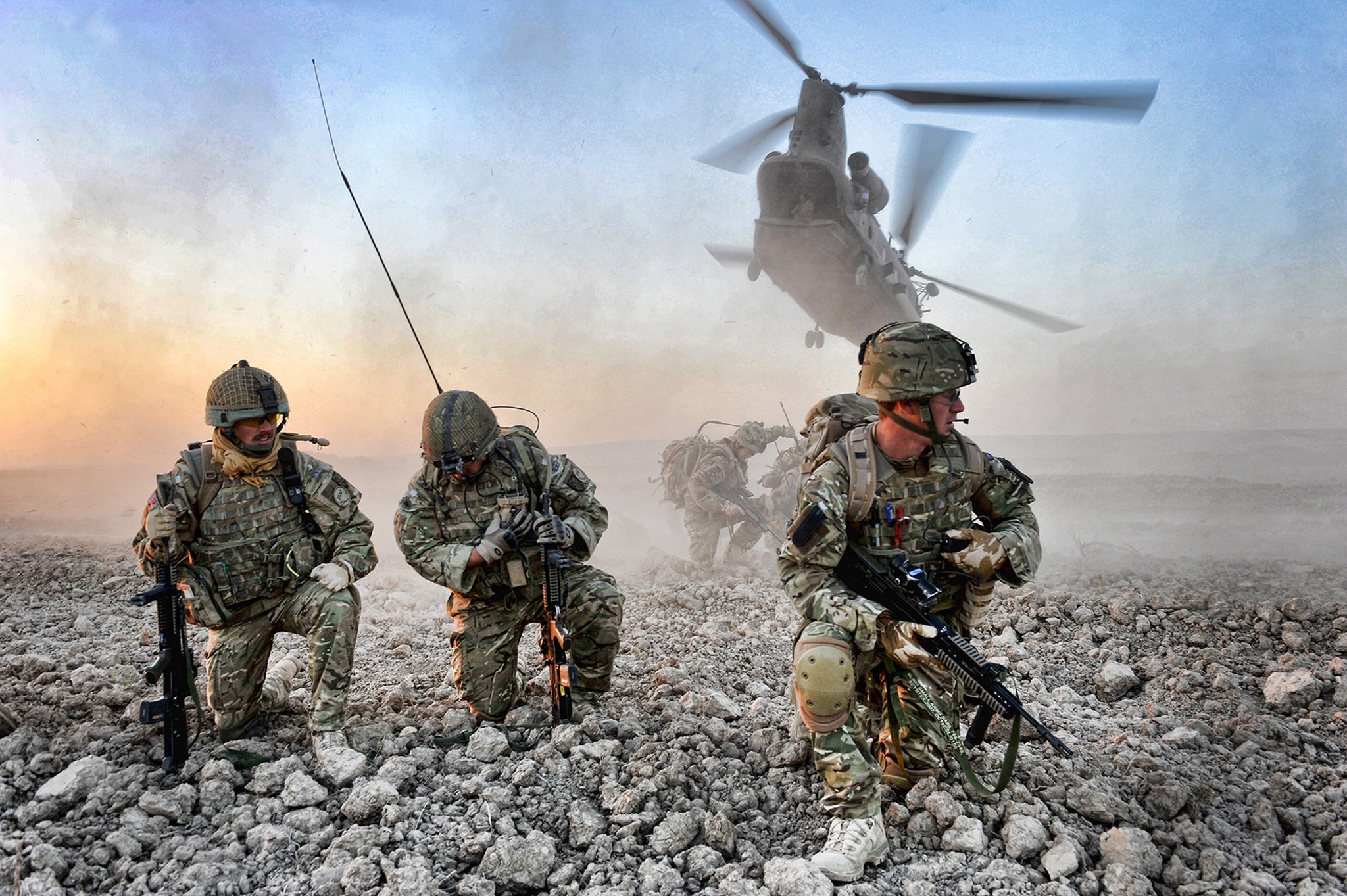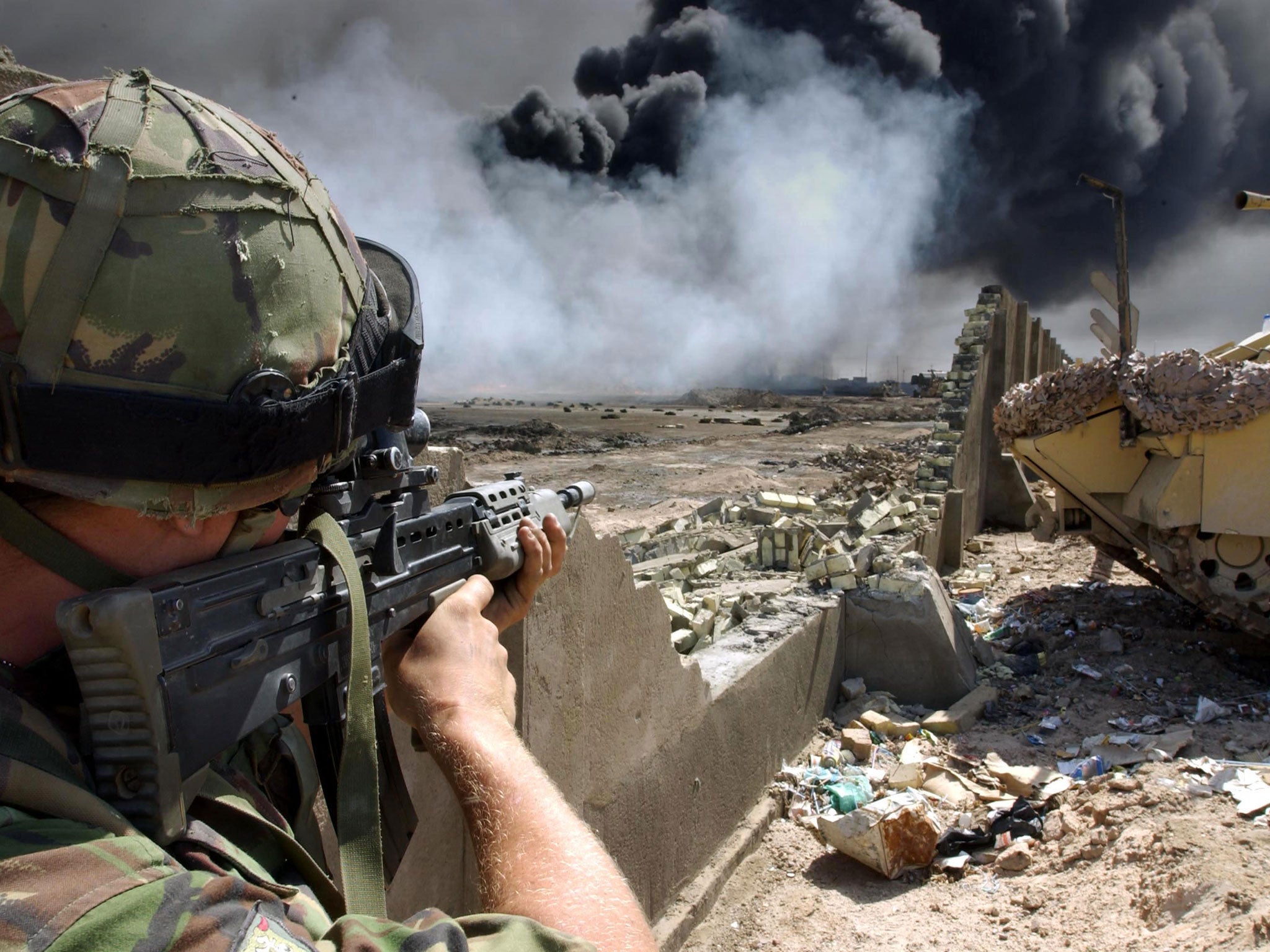British soldiers could face prosecution for crimes committed during Iraq conflict, investigators confirm
Exclusive: The unit established to test allegations of torture and unlawful killings has been overwhelmed with cases

Your support helps us to tell the story
From reproductive rights to climate change to Big Tech, The Independent is on the ground when the story is developing. Whether it's investigating the financials of Elon Musk's pro-Trump PAC or producing our latest documentary, 'The A Word', which shines a light on the American women fighting for reproductive rights, we know how important it is to parse out the facts from the messaging.
At such a critical moment in US history, we need reporters on the ground. Your donation allows us to keep sending journalists to speak to both sides of the story.
The Independent is trusted by Americans across the entire political spectrum. And unlike many other quality news outlets, we choose not to lock Americans out of our reporting and analysis with paywalls. We believe quality journalism should be available to everyone, paid for by those who can afford it.
Your support makes all the difference.British soldiers who have served in Iraq may face prosecution for crimes including murder, the head of the unit established by the Ministry of Defence to investigate allegations of torture and unlawful killing in the war-torn country has said.
In his first major interview, Mark Warwick, a former police detective in charge of the Iraq Historic Allegations Team (Ihat), told The Independent that he believed there would be sufficient evidence to justify criminal charges.
“There are serious allegations that we are investigating across the whole range of Ihat investigations, which incorporates homicide, where I feel there is significant evidence to be obtained to put a strong case before the Service Prosecuting Authority to prosecute and charge,” he said.
Ihat’s caseload of allegations of ill-treatment or unlawful killing by British forces in Iraq between 2003 and 2009 has risen tenfold since it was established. In 2010, it was dealing with cases involving 152 victims. It is now dealing with more than 1,500 victims, according to Ihat’s latest quarterly update. Of these, 280 are victims of alleged unlawful killing by British forces in Iraq, but more than 200 of these cases have yet to be investigated, with just 25 under investigation.
Of 1,235 alleged cases of ill-treatment, including accusations of rape and torture, only 45 are under investigation.
Ihat’s initial target for completion of its investigations was 2016 but this will not be met. And, although the unit is funded until 2019, its work may not be finished by then.
“Over the next 12 to 18 months, we will review all the caseload to better understand the picture and then I think we can say whether 2019 seems realistic,” said Mr Warwick.
One of Ihat’s most notorious cases is that of Baha Mousa, an Iraqi hotel receptionist who died after being beaten, abused and restrained while held in custody by British soldiers in 2003. More than a decade on, Mr Warwick stressed that this remains “a live criminal investigation”.
Asked whether some cases could constitute war crimes, he said: “There are lots of significant cases that we are investigating and at the appropriate time it will be a matter for us to discuss with the SPA whether they meet the war-crimes threshold, but there are certainly serious allegations currently being investigated.”

Five years after Ihat was established, there has yet to be a single prosecution. Human rights groups are losing patience with the lack of obvious progress.
“The incredibly slow pace at which Ihat is investigating allegations of criminality committed by UK soldiers against Iraqi civilians is wholly unacceptable,” said Carla Ferstman, the director of the human rights charity Redress. “Things seem to still be moving at a snail’s pace. We call upon the Government to ensure Ihat can, and does, do what it was set up to do, and to do it now. This cannot be a whitewash.”
But Mr Warwick appealed for patience with his team’s process. “I think people need to understand the complexity, the volume and the geography aspects of this, and you can’t underestimate putting those three factors together and trying to conduct ethical investigations,” he said.
Not every allegation will result in an investigation, with “proportionality” of the offence being taken into account: “What’s the likely outcome to be if we do a full investigation, and what’s the likely penalty if we convict someone?” he said.
“We would look at the credibility of the allegation in the first instance; and, when we’ve looked at a lot of these extra cases coming to us, some of them are duplicates of cases, some of them we’ve already identified as part of our own investigation process, and some are multiple allegations, where we would investigate as a single allegation,” he added.
Meanwhile, Britain remains under the scrutiny of the International Criminal Court (ICC), which is conducting a preliminary examination of allegations of war crimes by British forces in Iraq.
The ICC is looking at more than 1,200 cases of alleged ill-treatment and unlawful killing – including almost 50 Iraqis who reportedly died in British custody.
Join our commenting forum
Join thought-provoking conversations, follow other Independent readers and see their replies
Comments